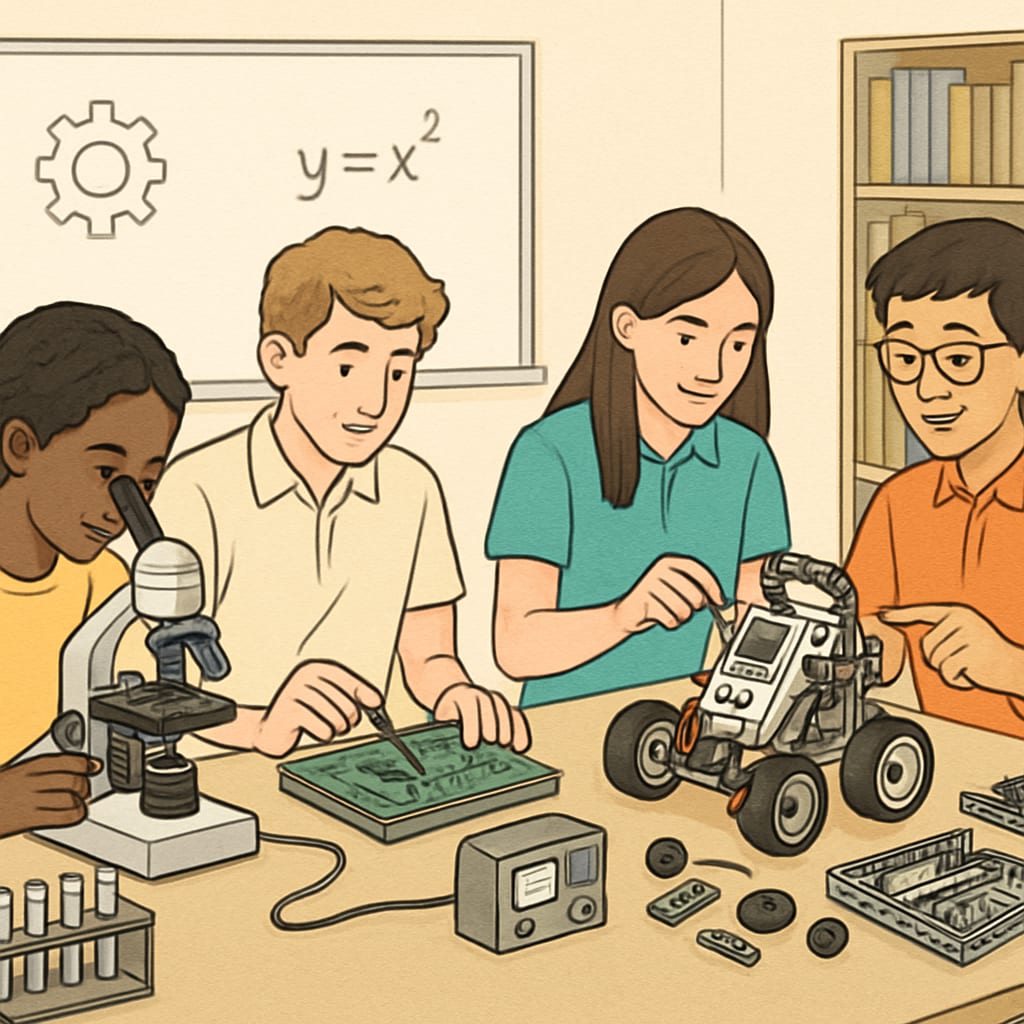For high school students with a passion for mathematics and science, deciding on a college major can be a challenging yet crucial step in their academic journey. The intersection of personal interests, career goals, and practical realities often creates uncertainty. This article offers a systematic approach to professional decision-making, focusing on interest evaluation, career exploration, and hands-on experience to help students align their academic passions with long-term opportunities.

Identifying Your Interests and Strengths
Before choosing a college major, it’s essential to understand your true interests and strengths. Are you drawn to problem-solving, data analysis, or creative applications of math? Conducting a self-assessment can help you pinpoint areas of enthusiasm. Tools like career aptitude tests or personality assessments such as the Myers-Briggs Type Indicator (MBTI) can provide valuable insights into fields that align with your unique characteristics and math skills.
In addition, speaking with teachers, mentors, and peers can offer a fresh perspective on your abilities and potential career paths. For example, a student excelling in calculus may find opportunities in engineering, while someone passionate about statistics might explore data science or actuarial roles.
Exploring Career Possibilities in Math and Science
Once you’ve assessed your interests, the next step is researching careers that utilize math and science skills. STEM (Science, Technology, Engineering, Mathematics) fields offer a variety of pathways, from academic research to industry applications. For example:
- Engineering: Civil, mechanical, or software engineering roles often require strong mathematical foundations.
- Data Science: With the rise of big data, careers in data analysis and machine learning are increasingly in demand.
- Finance: Actuarial science, investment analysis, and quantitative trading rely heavily on mathematical principles.
- Research: Academic or industrial research roles in physics, chemistry, or computer science provide opportunities to innovate.
Visiting reputable resources like STEM fields on Wikipedia and STEM education on Britannica can provide deeper insights into these careers and their requirements.

Gaining Practical Experience Through Exploration
Practical experience is invaluable when deciding on a college major. Participating in internships, summer programs, or online courses can give you a taste of real-world applications. For instance, high school students interested in coding could explore platforms like Codecademy or attend hackathons, while aspiring engineers might benefit from shadowing professionals or enrolling in pre-college workshops.
Additionally, volunteering for community projects that require math skills—such as managing budgets or analyzing survey data—can help refine your interests and build confidence. These experiences not only strengthen your college applications but also provide clarity about your future aspirations.
Balancing Passion with Career Realities
While it’s important to follow your passions, practical considerations like job market trends, salary expectations, and long-term stability should also factor into your decision-making process. For example, a student passionate about pure mathematics might consider combining their interest with applicable fields like cryptography or artificial intelligence to increase employability.
In addition, connecting with professionals in your desired field can provide valuable insights into industry demands and daily job responsibilities. Platforms like LinkedIn or local career fairs are excellent starting points for building these networks.
As a result, balancing your love for math and science with real-world opportunities will ensure a fulfilling and sustainable career path. By combining self-assessment, research, and practical experience, high school students can confidently approach college applications and embark on an academic journey tailored to their unique goals.


